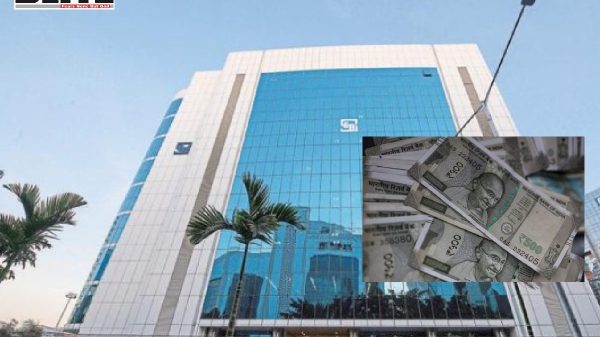Revolutionizing India’s corporate bond market
- Update Time : Saturday, September 28, 2024

If you’ve watched The Big Short or read Michael Lewis’ book, you’re likely familiar with one of the most iconic trades in Wall Street history. The film chronicles how California-based hedge fund manager Michael Burry predicted the 2008 financial crisis and turned his foresight into $700 million in profits for his investors over two years.
Burry’s strategy hinged on credit default swaps (CDS), a financial instrument that allows investors to “insure” themselves against the default of a debt. By purchasing a CDS, the buyer essentially bets that a bond or loan will default, while the seller takes the opposite stance. The cost of this “insurance” – the CDS premium – depends on the market’s perceived risk of default.
The Securities and Exchange Board of India’s (SEBI) recent decision to grant mutual funds greater flexibility in both buying and selling Credit Default Swaps (CDS) marks a monumental shift in the Indian credit market. Previously, mutual funds were only allowed to buy protection on bonds held by Fixed Maturity Plans. Now, with the ability to both buy and sell, this is one of many pivotal steps toward establishing a fully functional CDS market in India.
At its core, what is a CDS? Think of it as insurance against a bond default—simple yet incredibly powerful. If you’ve seen The Big Short, you’re already familiar with the transformative potential of this financial instrument. When used prudently, CDS derivatives have the ability to reshape markets and drive economic expansion like few others.
Enhanced credit pricing
One of the most immediate benefits of a liquid CDS market is better credit pricing. Bond markets paired with a vibrant CDS market allow for greater price discovery, which in turn improves the pricing of credit risk. This helps lenders assess a borrower’s credit quality more accurately, enabling differentiation between high-quality and lower-quality borrowers. For good borrowers, this means cheaper borrowing costs, which can incentivize businesses to maintain strong balance sheets.
This change in behavior is essential for India’s financial health. A CDS market that rewards companies with sound financial practices will help foster a culture of responsible borrowing and lending. While rating agencies also evaluate credit risk, they can often be slower or retrospective in their analysis. In contrast, the CDS market offers a dynamic and real-time assessment of risk, lowering capital costs for better businesses and reducing the likelihood of lenders being burdened with “lemons.” This leads to healthier credit expansion and, ultimately, economic growth.
Mitigating jump-to-default risk
A second key advantage of a liquid CDS market is its ability to reduce “Jump-to-Default” risk. The IL&FS crisis is a prime example of this. In that case, the company’s credit problems had been simmering for some time, but the market only became aware of the issues through a sudden, one-time shock. With a liquid CDS market providing daily pricing transparency, such shocks would be far less likely.
The implications for the Indian economy are profound. A one-time shock can send ripples across balance sheets, stifling credit flow and slowing down growth. On the other hand, early identification of credit risks allows for a smoother, more stable growth trajectory.
Changing dynamics in bank balance sheets
India’s banking sector is undergoing structural shifts, particularly in terms of how banks compete for deposits. Younger generations are consuming and investing differently than their predecessors, reducing the pool of savings traditionally held by banks. This shift is leading to a long-term compression in net interest margins, a trend that’s unlikely to reverse.
This structural change has two major implications. First, corporate bond markets will need to take on a much larger role in financing, and a variety of new lenders are likely to emerge. Both will be facilitated by a robust CDS market. Liquidity in the CDS market will bolster liquidity in corporate bond markets, attracting both domestic and international participants, from banks to insurance companies to mutual funds. This diversity will strengthen India’s financial ecosystem.
Opening doors for structured credit
Perhaps even more exciting is the emergence of a new class of lenders in the structured credit space. The issue in India’s financial system isn’t always about the availability of capital. It’s the combination of availability, cost, and flexibility that matters. Many cases in India’s National Company Law Tribunal (NCLT) involve high-quality assets that are pushed into bankruptcy – not because they are poor businesses, but because their capital structures are flawed. They are over-leveraged and burdened with unsustainable interest payments during their growth phase.
A well-functioning CDS market can play a crucial role in solving this problem. By facilitating the development of a structured credit market, CDS will allow businesses to access more flexible and affordable capital, helping them thrive rather than fail.
The road ahead
The growth of India’s CDS market is a step in the right direction, but it’s only the beginning. As SEBI continues to introduce measures to deepen the market, the ultimate goal is to increase the “capital stock” available for India’s economic growth. Developing liquid and efficient capital markets is crucial to sustaining India’s growth story, and the CDS market will be a fundamental part of that journey. SEBI’s decision to expand CDS usage is a clear signal that India is heading in the right direction.
This article is co-authored by Poornima Vardhan
















Leave a Reply